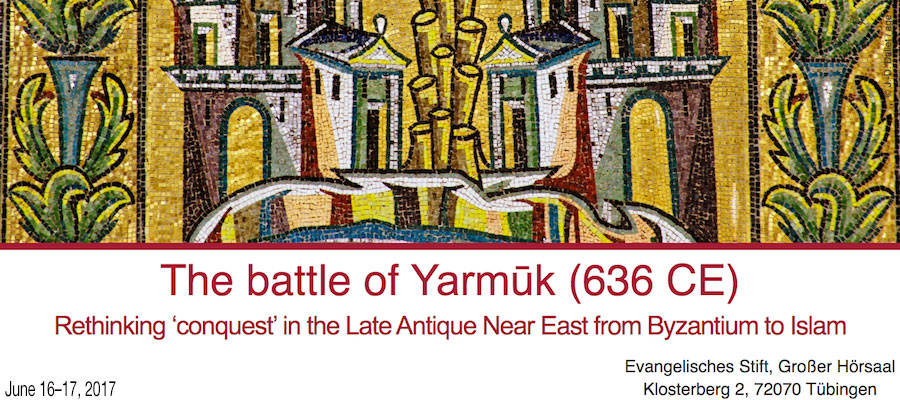The battle of Yarmūk (636 CE). Rethinking 'conquest' in the late antique Near East from Byzantium to Islam, Evangelischen Stift, Tübingen, June 16–17, 2017
The battle which took place in the narrows of the Yarmuk, the largest tributary of the Jordan River, in A.D. 636/A.H. 15 came to be regarded in both the Greek and the Arabic traditions as the turning point in the early confrontation between the Byzantine Empire and the Arabs, opening the way to the rapid conquest of the Middle East by the latter and the creation of an Islamic Empire. Historical records of this stage of the conflict were also kept by Syrian and Armenian Christians and are of great value. In 2003, W. E. Kaegi wrote: “One of the principal tasks for modern historians is the weighing and comparing of non-Muslim and Muslim sources […] in the search to evaluate the authenticity of separated bits of memory from the merely spurious.” While this may not always be possible, the organizers of this conference are aiming to bring together, among others, Byzantinists and Arabists and engage in a shared debate on the history and reception of the events attached to a specific memory space.
